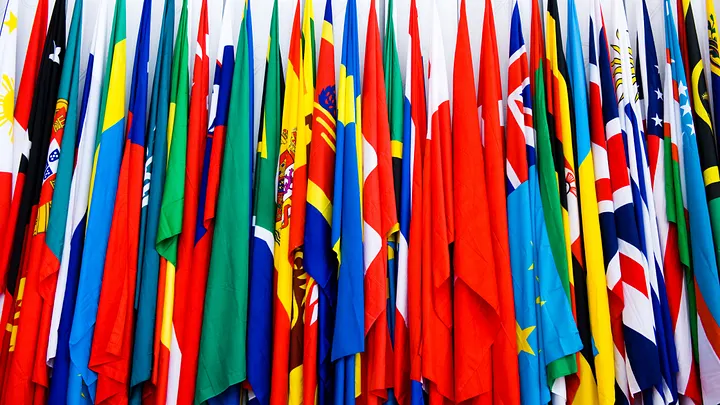
The concept of a global superpower has shaped global politics, economics, and culture for decades. The United States has held the title for much of the modern era, while China has risen rapidly to challenge its dominance. However, with shifting economies, demographic changes, and technological revolutions, new contenders are emerging on the world stage. The question is no longer if a change is coming, it’s which country will step into the role next.
Below is a look at four countries with the potential to become the next global superpower, each offering unique advantages in resources, influence, and long-term growth potential.
1. Nigeria: Africa’s Rising Global Superpower Candidate
Nigeria is already the largest economy in Africa, and its trajectory shows no signs of slowing down. With a population exceeding 220 million, a thriving technology sector, and abundant natural resources, Nigeria is well-positioned for significant global influence.
Key Advantages
-
Technology Leadership in Africa
Lagos, often referred to as the “Silicon Valley of Africa,” is home to billion-dollar fintech companies such as Flutterwave, Paystack, and Andela. This tech boom is attracting global investment.
-
Natural Resource Strength
As Africa’s largest oil producer, Nigeria has an economic backbone supported by energy exports.
-
Diaspora and Remittance Impact
Nigerians abroad contribute billions annually through remittances, fueling local real estate, startups, and infrastructure projects.
For global entrepreneurs, Nigeria represents a gateway to West Africa’s vast 400 million–person consumer market. With growing middle-class wealth and international connectivity, it could soon emerge as a central player in global trade and innovation.
2. UAE: The Middle East’s Global Superpower in the Making
The United Arab Emirates, particularly Dubai and Abu Dhabi, has transformed into a hub for global wealth, innovation, and luxury. Its combination of tax-free business incentives, forward-thinking infrastructure projects, and strategic investments has made it one of the most competitive nations on Earth.
Key Advantages
-
Pro-Business Policies
With zero income tax and simplified company formation, the UAE attracts high-net-worth individuals, multinational corporations, and global entrepreneurs.
-
Technological and Infrastructure Investments
The UAE leads in AI adoption, blockchain development, and smart city innovation.
-
Luxury Tourism and Real Estate
The nation’s appeal to the global elite continues to drive demand for luxury properties and exclusive lifestyle opportunities.
For those seeking an international base with tax benefits, global connectivity, and advanced infrastructure, the UAE stands out as a serious contender for global superpower status.
3. Brazil: South America’s Sleeping Giant
Brazil is the largest economy in Latin America and has the resources, population, and market size to become a dominant global force. With over 214 million people and vast agricultural and mineral wealth, Brazil’s influence extends far beyond its borders.
Key Advantages
-
Massive Consumer Market
Brazil offers one of the largest and most brand-loyal populations outside of North America.
-
Agriculture and Commodity Leadership
The country is a top exporter of soy, coffee, beef, and gold, making it a key supplier in the global economy.
-
Thriving Startup Ecosystem
Cities like São Paulo are fueling Latin America’s tech and e-commerce growth.
For investors and global brands, Brazil offers both scale and stability in a region that is gaining increasing global importance.
4. India: A Strong Contender for the Next Global Superpower
India’s potential is unmatched in terms of population size, economic growth rate, and technological capability. With over 1.4 billion people, a rapidly growing middle class, and an expanding role in global manufacturing, India is shaping up to be a leading contender for th next global superpower.
Key Advantages
-
Tech and IT Dominance
India continues to lead in software development, AI innovation, and global outsourcing services.
-
Expanding Consumer Base
Rising incomes and urbanization are fueling domestic demand for goods and services.
-
Manufacturing Growth
As companies diversify away from China, India’s industrial sector is benefiting from increased foreign investment and trade partnerships.
India’s combination of economic scale, skilled labor, and strategic positioning in Asia makes it a nation to watch closely in the next decade.
Final Thoughts: The Shifting Balance of Global Power
While the United States and China remain major forces, the next global superpower could emerge from unexpected places. Nigeria’s tech-driven growth, the UAE’s business-friendly policies, Brazil’s resource dominance, and India’s demographic and technological advantages all position these nations for significant global influence.
For businesses, investors, and policymakers, the key is to identify not just the strongest current economies, but the ones with the right combination of resources, governance, and innovation to lead in the future. The global power landscape is no longer static; it’s a race, and the winners will define the next era of international relations and economic growth.









